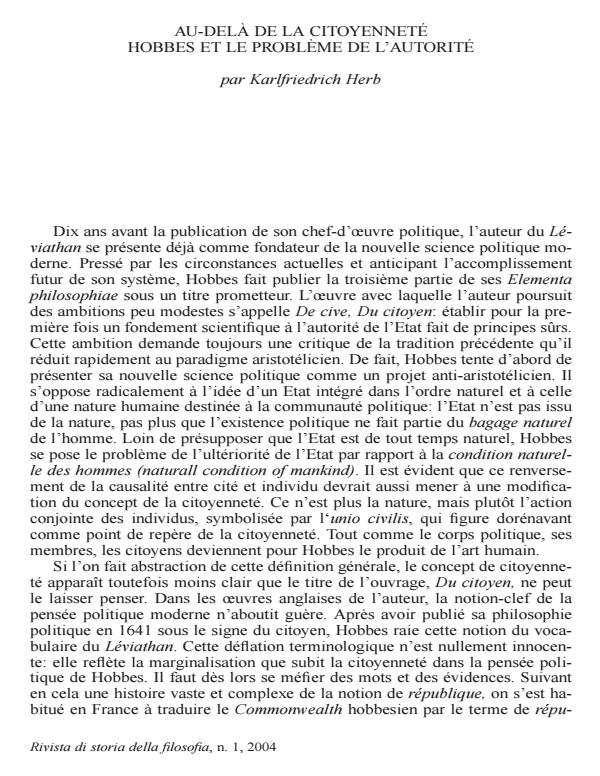Au-delà de la citoyenneté: Hobbes et le problème de l'autorité
Journal title RIVISTA DI STORIA DELLA FILOSOFIA
Author/s Karlfriedrich Herb
Publishing Year 2004 Issue 2004/1
Language Italian Pages 7 P. File size 31 KB
DOI
DOI is like a bar code for intellectual property: to have more infomation
click here
Below, you can see the article first page
If you want to buy this article in PDF format, you can do it, following the instructions to buy download credits

FrancoAngeli is member of Publishers International Linking Association, Inc (PILA), a not-for-profit association which run the CrossRef service enabling links to and from online scholarly content.
Karlfriedrich Herb shows that the new theory of representation in Leviathan implies a rejection of direct democracy, which was still referred to, and active as a political model, in The Elements of Law and De cive. Since the social contract gives full authority to the sovereign, there is no longer any reason to consider democracy as the original form of all governments. Democracy thus plays no part in the definition of the citizen’s liberty, and consequently the liberty of the subject is not at all a matter of participation in political life. To the contrary, this civil liberty is directly proportional to the independence left to the citizen by the legislator. The famous maxim defining liberty as the silence of the law is therefore to be considered anew in the perspective of the theory of representative sovereignty. The authority of the sovereign has nothing to do, in Hobbes’s thought, with the authoritas of the ancient Romans, since actual peace is its only source of legitimacy. It is not possible, therefore, to include Leviathan in a history of Republicanism.
Karlfriedrich Herb, Au-delà de la citoyenneté: Hobbes et le problème de l'autorité in "RIVISTA DI STORIA DELLA FILOSOFIA" 1/2004, pp , DOI: